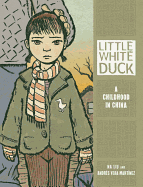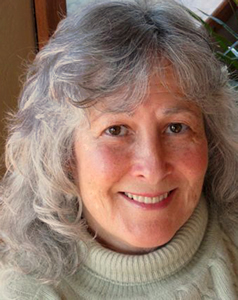 Robin Maxwell often wonders how growing up a suburban New Jersey girl, an education at Tufts University as an occupational therapist, stints as a music business secretary, parrot tamer, casting director, dozens of Hollywood script development deals and marriage to yoga master Max Thomas prepared her for a career in writing. After eight historical fictions, including Signora da Vinci and The Secret Diary of Anne Boleyn, she is jumping genres with Jane: The Woman Who Loved Tarzan (Tor, September 18, 2012), the first Tarzan tale written a woman and authorized by the Burroughs estate.
Robin Maxwell often wonders how growing up a suburban New Jersey girl, an education at Tufts University as an occupational therapist, stints as a music business secretary, parrot tamer, casting director, dozens of Hollywood script development deals and marriage to yoga master Max Thomas prepared her for a career in writing. After eight historical fictions, including Signora da Vinci and The Secret Diary of Anne Boleyn, she is jumping genres with Jane: The Woman Who Loved Tarzan (Tor, September 18, 2012), the first Tarzan tale written a woman and authorized by the Burroughs estate.
On your nightstand now:
I've had some trouble with my eyes, so I now happily listen to audiobooks. I just finished one of the most extraordinary and indescribable novels ever--Cloud Atlas by David Mitchell. There are six distinct voices read by six amazing actors, each of them cleverly linked to the others. The language and the concepts boggle the mind. It was one of those books that made me think, how did that author write that? I never could have.
I'm halfway through Old Filth by Jane Gardam. I bought it because my two best girlfriends--separately--told me they'd read it and it was utterly fantastic (and because I was intrigued by the title). Again, I'm stunned by the beauty of the language, the originality of the story and characters, and its wicked humor.
Favorite book when you were a child:
I grew up reading the Brothers Grimm and Hans Christian Andersen's fairy tales--the darker the story, the better. These stories stimulated my love of horror and fantasy, as well as my comfort with the medieval/Renaissance period, royal courts, princes and princesses, which later showed up in my historical fiction.
Your top five authors:
I learned a lot about writing by reading early Stephen King--particularly dialogue, of which he is a great master. Loved the scares, too. Doing research for my first historical novels, I found that the Tudor biographies of Carolly Erickson were the most fun to read. She wrote with real attitude and wasn't afraid to go out on a limb, saying things other historians didn't dare say. Loved the weird brilliance of Kurt Vonnegut and the late Terrence McKenna, who delved into the world of psychotropic drugs and their impact on human evolution, a fascinating subject to me. His sentence structure (when writing or lecturing) was so complex and off-the-chart brilliant that you couldn't believe he'd finished a single thought that had gone on for an entire paragraph that was grammatically correct and insanely incisive. C.W. Gortner stands out among the ever-increasing gang of historical fiction authors as a real gem. He fearlessly chooses the most reviled women in history and explodes the clichés and myths about their characters and deeds, guiding readers to an understanding of how they became these iconic figures.
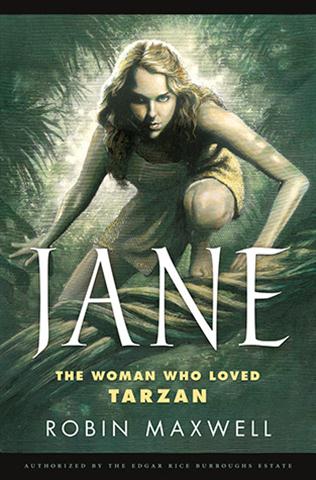 Book you've faked reading:
Book you've faked reading:
Angela's Ashes by Frank McCourt. I didn't exactly fake reading this monster bestseller. I tried reading it twice because everyone was raving about it. But I couldn't get through it--it was such an unrelentingly grim story of growing up dirt-poor in Dublin with an alcoholic father. I finally gave up trying. Then my friend gave me the unabridged book on tape, read by McCourt himself. There was so much natural humor in his voice that it transcended the darkness of the material. Listening to Angela's Ashes stands as the single greatest literary experience of my life.
Book you're an evangelist for:
Year of Wonders: A Novel of the Plague by Geraldine Brooks. How does a book about a year in the life of a medieval village struck by the Black Plague end up as the book I most evangelize about? Gorgeous language. Heartfelt characters brimming with the deepest emotions under the most horrible of circumstances. Brooks taught me a lot about how to make readers root for the heroine.
Book you've bought for the cover:
Confessions of an Ugly Stepsister by Gregory Maguire.
Books that changed your life:
Norah Lofts authored the first historical fiction novels I ever read--The King's Pleasure, about Henry VIII's first wife, Catherine of Aragon, and The Concubine, about her successor, Anne Boleyn. By the time I'd finished Concubine, I was hooked on everything Tudor. It would be 25 years before I'd write my debut novel, The Secret Diary of Anne Boleyn, but I'd write five more about the Tudors and their immediate ancestors before I broke rank and departed for the Italian Renaissance. Lofts' two books changed the course of my career, my fortunes and my life.
Favorite line from a book:
You don't have to be good.
You do not have to walk on your knees
for a hundred miles through the desert, repenting.
You only have to let the soft animal of your body
love what it loves.
--From "Wild Geese" by Mary Oliver, from New and Selected Poems Vol. 1.
Book you most want to read again for the first time:
Fingerprints of the Gods by Graham Hancock. I've always been fascinated by lost civilizations and the antediluvian world. British journalist and skeptic Hancock set off with his wife to disprove the most persistent myths about these mysterious places, and came away a believer. His beautifully researched doorstop of a book documents them all, ending with a sharply drawn theory of the whereabouts of the granddaddy of lost civilizations--Atlantis. Fingerprints is a big Brooklyn cheer to those who consider seekers of the great mysteries of the universe (like myself) a bunch of crackpots. Even now I'm putting the final touches on my own Atlantis novel.
Book you wish you'd written:
Fingersmith. Holy cow, can Sarah Waters write! This is another book I believe was enhanced by having it read to me by talented actresses. But the characterization of two very different young women in Victorian England tied together by the strangest of circumstances, a circuitous but neatly worked plot and a cast of characters so colorful they rival Dickens's best, kept me up night after night until it (sadly) came to an end. A stunning end.
 Under a new partnership, Librería Martínez, Santa Ana, Calif., the bookstore founded and owned by Ruebén Martínez, has become a nonprofit community educational initiative under the oversight of Chapman University, Orange, Calif. The Librería Martínez de Chapman University is closed for remodeling and will hold its grand reopening October 27.
Under a new partnership, Librería Martínez, Santa Ana, Calif., the bookstore founded and owned by Ruebén Martínez, has become a nonprofit community educational initiative under the oversight of Chapman University, Orange, Calif. The Librería Martínez de Chapman University is closed for remodeling and will hold its grand reopening October 27.


SHELFAWARENESS.1222.S1.BESTADSWEBINAR.gif)


SHELFAWARENESS.1222.T1.BESTADSWEBINAR.gif)
 Less than a month after announcing its
Less than a month after announcing its  The European Union released
The European Union released 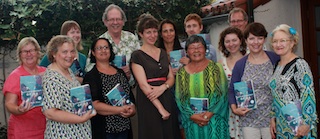
 The Longest Way Home: One Man's Quest for the Courage to Settle Down
The Longest Way Home: One Man's Quest for the Courage to Settle Down Robin Maxwell often wonders how growing up a suburban New Jersey girl, an education at Tufts University as an occupational therapist, stints as a music business secretary, parrot tamer, casting director, dozens of Hollywood script development deals and marriage to yoga master Max Thomas prepared her for a career in writing. After eight historical fictions, including Signora da Vinci and The Secret Diary of Anne Boleyn, she is jumping genres with Jane: The Woman Who Loved Tarzan (Tor, September 18, 2012), the first Tarzan tale written a woman and authorized by the Burroughs estate.
Robin Maxwell often wonders how growing up a suburban New Jersey girl, an education at Tufts University as an occupational therapist, stints as a music business secretary, parrot tamer, casting director, dozens of Hollywood script development deals and marriage to yoga master Max Thomas prepared her for a career in writing. After eight historical fictions, including Signora da Vinci and The Secret Diary of Anne Boleyn, she is jumping genres with Jane: The Woman Who Loved Tarzan (Tor, September 18, 2012), the first Tarzan tale written a woman and authorized by the Burroughs estate.  Book you've faked reading:
Book you've faked reading: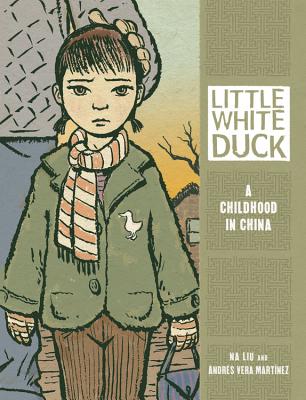 Through seven episodes from Na Liu's childhood, Na Liu and Andrés Vera Martínez (her husband, co-author and the artist of the book) offer readers a close-up picture of life in 1970s China. The vignettes move as fluidly as the Yangtze River that flows through Na Liu's town, from an experience of national concern to one of great moment for Na personally.
Through seven episodes from Na Liu's childhood, Na Liu and Andrés Vera Martínez (her husband, co-author and the artist of the book) offer readers a close-up picture of life in 1970s China. The vignettes move as fluidly as the Yangtze River that flows through Na Liu's town, from an experience of national concern to one of great moment for Na personally.